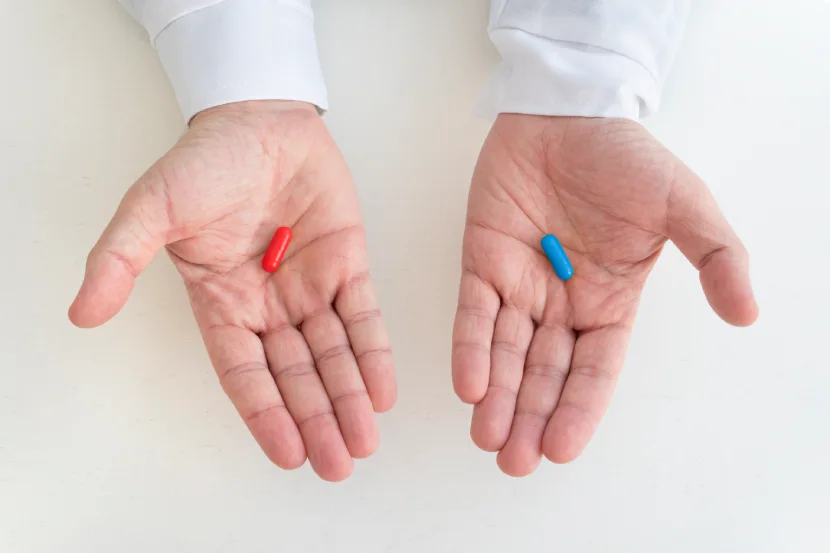Have you been feeling overwhelmed by stress lately? Understanding the relationship between phosphatidylserine and cortisol could be your key to better stress management. As a health and nutrition expert, I’m excited to guide you through the science behind this remarkable compound and its effects on your body’s stress response.
What is Phosphatidylserine? Understanding the Basics
Chemical Structure and Natural Sources
Phosphatidylserine is a phospholipid compound that serves as a vital component of cell membranes throughout your body, particularly concentrated in brain tissue. When we examine the connection between phosphatidylserine and cortisol, it’s important to understand that this compound works at the cellular level. You can find it naturally in various food sources, with the highest concentrations present in organ meats, fish (especially mackerel and herring), and soy lecithin. However, getting therapeutic amounts through diet alone can be challenging, which is why many people turn to supplementation.
Role in Cell Membranes
Your cells rely on phosphatidylserine to maintain their structure and facilitate crucial functions. The interaction between phosphatidylserine and cortisol begins at the cellular level, where this phospholipid helps regulate cell signaling, particularly in neurons. Think of it as a building block that helps your cells communicate effectively while maintaining their integrity.

The Science Behind Phosphatidylserine and Cortisol
How Phosphatidylserine Affects Stress Hormones
Recent studies exploring phosphatidylserine and cortisol regulation have revealed fascinating insights into stress management. When you’re stressed, your body produces more cortisol, often called the “stress hormone.” Research suggests that phosphatidylserine can help normalize cortisol production, particularly in people experiencing chronic stress or those engaged in intensive physical training. The relationship between phosphatidylserine and cortisol becomes especially important during periods of high stress.
Research-Backed Evidence
Scientific studies have consistently demonstrated the effectiveness of phosphatidylserine and cortisol management. For instance, research has shown that individuals taking phosphatidylserine supplements experienced lower cortisol levels following stressful situations compared to those taking a placebo. This finding has been particularly well-documented in athletes and individuals under chronic stress.
Key Benefits of Phosphatidylserine Supplementation
Stress Management and Cortisol Regulation
Understanding how phosphatidylserine and cortisol interact can help you make informed decisions about your stress management strategy. Regular supplementation may help your body maintain healthy cortisol levels, particularly during periods of increased stress. This can translate into better stress resilience and improved overall well-being. Many users report feeling more balanced and better equipped to handle daily stressors when taking phosphatidylserine supplements.
Cognitive Enhancement
Beyond its effects on stress hormones, phosphatidylserine has shown promising results in supporting cognitive function. It may help improve memory, focus, and mental clarity, particularly in older adults. The cognitive benefits are thought to stem from its role in maintaining healthy nerve cell membranes and supporting neurotransmitter function.
Sleep Quality Improvement
If you’re struggling with sleep issues, phosphatidylserine for sleep might be worth considering. By helping to regulate cortisol levels, phosphatidylserine may contribute to better sleep patterns. Many users report improved sleep quality when taking phosphatidylserine supplements, particularly when taken as part of their evening routine.
Phosphatidylserine vs Other Phospholipids
Comparing Phosphatidylserine and Phosphatidylcholine
When exploring phospholipid supplements, you’ll often encounter both phosphatidylserine and phosphatidylcholine. While both are essential phospholipids, they serve different functions in your body. Understanding the relationship between phosphatidylserine and cortisol becomes particularly important when comparing these compounds, as phosphatidylcholine doesn’t share the same stress-management properties.
Unique Properties and Benefits
The distinct advantages of phosphatidylserine and cortisol regulation set it apart from other phospholipids. While phosphatidylcholine primarily supports liver health and cell membrane fluidity, the interaction between phosphatidylserine and cortisol makes it particularly valuable for stress management and cognitive function.
Forms and Types of Phosphatidylserine Supplements
Powder Formulations
Phosphatidylserine powder has gained popularity among those seeking flexible dosing options. When considering the effects of phosphatidylserine and cortisol management, powder forms allow for precise dosage adjustment. However, proper measurement is crucial for optimal results.
Capsules and Softgels
Most research studying phosphatidylserine and cortisol has been conducted using capsule or softgel formulations. These forms offer convenience and precise dosing, making them popular choices for daily supplementation. The relationship between phosphatidylserine and cortisol remains consistent across these delivery methods, though absorption rates may vary slightly.
Quality Indicators to Look For
When selecting a supplement, look for products that clearly indicate their phosphatidylserine content and source. The effectiveness of phosphatidylserine and cortisol management can be influenced by supplement quality. Consider factors such as:
- Third-party testing certification
- Source of phosphatidylserine (soy vs. sunflower)
- Manufacturing standards
- Presence of unnecessary fillers or additives
Optimal Dosage and Timing
Recommended Daily Intake
Clinical studies exploring phosphatidylserine and cortisol typically use doses ranging from 300-800mg daily, often divided into multiple doses. Your optimal dosage may vary depending on your specific needs and health goals.
Best Time to Take Phosphatidylserine
Timing can significantly impact the effectiveness of your supplementation. Many people wonder when to take phosphatidylserine for optimal results. For stress management, consider taking it during periods of peak cortisol production, typically in the morning or before stressful events. If using it for sleep support, evening dosing may be more beneficial.
Special Considerations
Individual factors such as age, stress levels, and overall health status can influence your supplementation needs. Athletes and individuals under high stress might benefit from higher doses, while others may achieve desired results with lower amounts. Always start with a lower dose to assess your tolerance.
Clinical Applications and Research
Stress-Related Conditions
Research has demonstrated promising results in using phosphatidylserine supplements for various stress-related conditions. Studies show particular benefits for individuals experiencing:
- Chronic stress
- Work-related burnout
- Performance anxiety
- Athletic stress recovery
Sleep Disorders
Growing evidence supports the use of phosphatidylserine for sleep improvement. By helping to normalize cortisol rhythms, many users report enhanced sleep quality and better sleep patterns. This benefit seems particularly pronounced in individuals whose sleep issues are stress-related.
Cognitive Health
While much attention focuses on stress management, phosphatidylserine’s cognitive benefits shouldn’t be overlooked. Regular supplementation may support:
- Memory retention
- Mental clarity
- Focus and concentration
- Age-related cognitive decline prevention
Safety and Potential Side Effects
Understanding the safety profile of phosphatidylserine and cortisol supplements is crucial for making informed decisions about your supplementation routine. While phosphatidylserine is generally considered safe for most people, it’s essential to understand potential interactions and precautions.
Known Interactions
The relationship between phosphatidylserine and cortisol regulation can be affected by certain medications, particularly those that influence hormone levels or brain chemistry. Some users have reported mild digestive discomfort when first starting supplementation, though these effects typically subside as your body adjusts. If you’re taking any medications, particularly blood thinners or anti-anxiety medications, consult with your healthcare provider before beginning supplementation.
Contraindications
While studying phosphatidylserine and cortisol interactions, researchers have identified certain situations where caution is warranted. For instance, individuals with specific blood conditions should exercise extra care, as phosphatidylserine may influence blood clotting mechanisms. Understanding the connection between phosphatidylserine and cortisol becomes particularly important in these cases, as the stress-reducing benefits must be weighed against potential risks.
Special Precautions
Monitoring your body’s response to phosphatidylserine and cortisol management is essential, especially during the initial supplementation period. Some individuals may experience heightened sensitivity to phosphatidylserine, particularly when taken in higher doses. Start with a lower dose and gradually increase it while paying attention to how your body responds.
Special Applications
Hair Health and Loss Prevention
Recent research exploring phosphatidylserine and cortisol has revealed interesting connections to hair health. Chronic stress and elevated cortisol levels can contribute to hair loss, and some users have reported improvements in hair quality when using phosphatidylserine supplements as part of their stress management routine. While more research is needed in this area, the theoretical basis for these benefits lies in the compound’s ability to help regulate stress hormones.
Athletic Performance
Athletes have shown particular interest in the relationship between phosphatidylserine and cortisol, especially regarding recovery and performance. During intense training periods, your body’s cortisol levels can become elevated, potentially impacting recovery and muscle growth. Phosphatidylserine supplementation may help maintain a healthy hormonal balance during these demanding periods, supporting better training outcomes and reduced recovery time.
Immune System Function
The intricate connection between stress hormones and immune function suggests that managing phosphatidylserine and cortisol levels could potentially support your body’s natural defense systems. Chronic stress can suppress immune function, making stress management an important aspect of maintaining overall health. Some research indicates that phosphatidylserine’s ability to help regulate cortisol levels might indirectly support immune system function.

Choosing the Right Phosphatidylserine Supplement
Quality Markers
When selecting a phosphatidylserine supplement, look beyond basic label claims. High-quality products should provide detailed information about their manufacturing processes, sourcing, and quality control measures. Some manufacturers use standardized testing methods to ensure consistent potency and purity, which can be particularly important when you’re seeking specific benefits like cortisol regulation.
Brand Evaluation
While we won’t recommend specific brands, understanding what makes a reputable manufacturer is crucial. Look for companies that:
- Maintain transparent manufacturing practices
- Conduct regular third-party testing
- Provide clear information about their sourcing and processing methods
- Have a solid track record in the supplement industry
- Offer detailed product information and customer support
Price-Quality Ratio
While it might be tempting to opt for the lowest-priced option, remember that quality supplements require significant investment in research, testing, and premium ingredients. Consider the cost per serving rather than just the package price, and factor in the concentration and quality of the phosphatidylserine content when making your decision.
How to Maximize Benefits
Understanding the relationship between phosphatidylserine and cortisol can help you optimize your supplementation strategy. Your approach should align with your body’s natural rhythms and specific wellness goals.
Lifestyle Integration
While phosphatidylserine and cortisol management is important, it works best when combined with other stress-management practices. Consider pairing your supplementation with regular exercise, meditation, or other relaxation techniques. Many users find that maintaining consistent sleep schedules and healthy eating habits enhances the supplement’s effectiveness for stress management.
Complementary Nutrients
While phosphatidylserine works effectively on its own, certain nutrients can enhance its benefits. Omega-3 fatty acids, particularly DHA, may work synergistically with phosphatidylserine to support brain health and stress response. Additionally, B-complex vitamins can support overall energy levels and stress management when combined with your supplementation routine.
Timing Optimization
The relationship between phosphatidylserine and cortisol levels varies throughout the day. For optimal absorption and effectiveness, consider taking your supplement with meals containing some healthy fats. If you’re using it primarily for sleep support, evening dosing might be most beneficial. However, if stress management is your primary goal, splitting your doses throughout the day could provide more consistent benefits.
Frequently Asked Questions (FAQs)
Q: What’s the best time of day to take phosphatidylserine for stress management?
A: While individual needs may vary, taking phosphatidylserine with breakfast or lunch often works well for stress management. Some people prefer dividing their daily dose into two or three servings for more consistent effects throughout the day.
Q: Can phosphatidylserine help with sleep issues?
A: Yes, many users report improved sleep quality when taking phosphatidylserine, particularly when stress-related factors affect their sleep. Evening dosing may be most beneficial for sleep support.
Q: How long does it take to see results from phosphatidylserine supplementation?
A: Most people begin noticing improvements in stress levels and sleep quality within 2-4 weeks of consistent use. However, individual responses can vary, and some may experience benefits sooner or later.
Q: Are there any dietary considerations when taking phosphatidylserine?
A: While phosphatidylserine can be taken with or without food, taking it with meals containing healthy fats may improve absorption. Maintaining consistent timing with your doses can help optimize results.
Conclusion
Throughout this comprehensive guide, we’ve explored how phosphatidylserine and cortisol management can support various aspects of health and well-being. From its fundamental role in cell membrane health to its potential benefits for sleep, cognitive function, and athletic performance, phosphatidylserine offers promising support for those seeking natural ways to manage stress and improve overall health.
Remember that while supplementation can be a valuable tool for managing stress and supporting overall health, it works best as part of a comprehensive wellness strategy. Consider your individual needs and health goals when determining if phosphatidylserine supplementation is right for you. As with any supplement, consistency is key to experiencing optimal benefits.
Whether you’re looking to manage daily stress, support cognitive function, or improve your sleep quality, understanding how to properly use phosphatidylserine can help you make informed decisions about your health. Always consult with a healthcare provider before starting any new supplement regimen, particularly if you have existing health conditions or are taking medications.
By taking a thoughtful, informed approach to supplementation and maintaining realistic expectations, you can make the most of what phosphatidylserine has to offer for your health and wellness journey.



